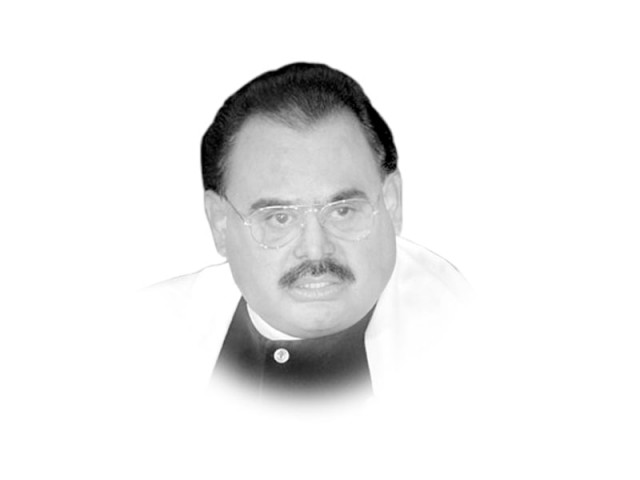Dialogue, but with whom?
If the Taliban is not a unified body, would it be fruitful to talk to it?

The writer is Founder and Leader of the MQM

The Afghan war pushed the country into the raging fire of war in the late 70s. The fire continues to burn with intensity even today as people of Pakistan across its length and breadth are falling prey. There are no visible signs that the country could be pulled off from this fire and put on the path of progress and prosperity. Extremism is beginning to stifle the spirit of Pakistan and the dreams of the founding fathers are turning into nightmares.
Thousands of lives have been lost in bomb blasts and suicide attacks. This includes officers and men of country’s armed forces and paramilitary forces as well as thousands of innocent civilians. Despite this, a recently held All Parties Conference (APC) gave the government the mandate to hold talks with these extremists and militants. The main spirit behind this mandate was to give peace a chance. The militants, however, continue to strike relentlessly. A serving major general of the army was martyred in an IED blast after the offer of dialogue to the Taliban. Militants spurned the offer by carrying out two suicide blasts in a church in Peshawar killing scores of people, including women and children. They have made it clear that they would continue to strike in future as well.
These recent acts of terrorism have provoked a huge wave of anger in the country and some quarters are demanding that the dialogue offer with the Taliban should be withdrawn forthwith. In response to this anger, some pro-Taliban parties are arguing that these recent attacks were carried out by some fringe groups and not the Taliban. They are also claiming that there are nearly 25 groups within the Taliban and some of them are still not in favour of talks, thus the possibility of their involvement. This argument throws the whole question of talks into deep complication: if the Taliban is not a unified body and lacks the ability to control other militant groups, would it be fruitful to talk to it? Should we talk to the Taliban or these fringe yet powerful groups or both?
There are some politicians in the country who maintain that the issue can be resolved by holding dialogues and some even suggest that the militants should be allowed to open an office for this purpose, thereby recognising them as a legitimate stakeholder.
This is a dangerous idea. A country has its own well-defined stakeholders: armed forces, the police, bureaucracy, economists, major political parties, ethnic and religious groups, etc. These stakeholders play positive and constructive roles in the process of nation-building, thereby strengthening the country. On the other hand, there are elements that work for weakening the country by engaging in destructive activities. It is these non-stakeholders who are commonly termed anti-state actors or anti-state elements.
Those who claim to be the most patriotic people in Pakistan but consider these non-state actors as the integral part of the state seek to legitimise what is patently illegitimate. We all want peace in the country and we all want to see the country emerging as a modern democracy among the international community. We all recognise the importance of holding dialogues for resolving issues but I would like to put a question to leaders, scholars and academicians. Dialogue but with whom?
Published in The Express Tribune, September 28th, 2013.
Like Opinion & Editorial on Facebook, follow @ETOpEd on Twitter to receive all updates on all our daily pieces.















COMMENTS
Comments are moderated and generally will be posted if they are on-topic and not abusive.
For more information, please see our Comments FAQ